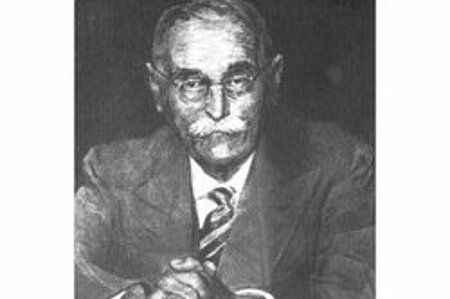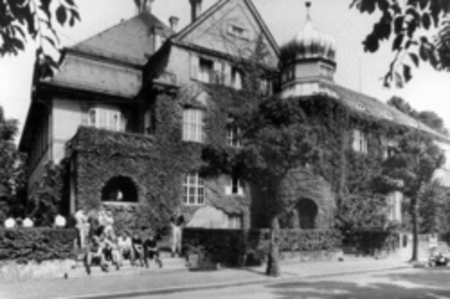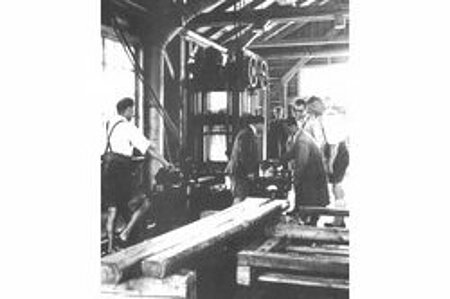History of the Faculty Wood Technology and Construction
When the “Holztechnikum Rosenheim” (Rosenheim wood technology centre) opened in 1925, no one could predict how training in wood technology would develop over the following decades. Through close contact with the wood industry, the centre’s training profile was continuously adapted in line with commercial requirements. In this way, the faculty has always had an established position and made its mark in the education sector and as a partner to industry in the German-speaking region as well as across the world.
Rosenheim Technical University of Applied Sciences is meanwhile regarded across the globe as the most important centre for training and further training in the entire wood sector. "Rosenheimer Holzer" has long been a well-known trademark for experts, used by trade and industry to demonstrate the value they place on the ability and expertise of the university's graduates from the professional Bavarian smiths.
1920s – 1940s - foundation
Regional contractors, including the Rosenheim sawmill owner Hugo Laue (1869–1956), founded the wood technology centre in the woodworking city of Rosenheim in 1925. The aim of this private specialist school was to ensure that local wood processing companies – Rosenheim was one of Germany’s largest wood transshipment points – had a secure supply of young workers with outstanding training. 18 years later, in 1943, the “Erste deutsche Fachschule für Holz-Industrie und Holzhandel” (first German specialist school for the wood industry and timber trade) was nationalised and renamed as the “Staatsbauschule Holztechnikum Rosenheim” (Rosenheim wood technology centre state construction school).
1950s – growth
Expansion of the wood technology centre began in the 1950s: the wood industry degree programme and sawmill engineering course were introduced and the school was renamed as the “Staatliches Holztechnikum Rosenheim - Staatliche Ingenieurschule” (Rosenheim state wood technology centre - state engineering school). From 1953 onwards, the centre offered a six-semester engineering degree programme in the wood sector and from 1958 onwards, practice and test facilities were built at the site of the current university.
1960s and 1970s – establishment
On its path to becoming the world’s best known wood technology engineering school, it was renamed again in 1962 as the “Staatliche Ingenieurschule für Holztechnik - Staatliches Holztechnikum Rosenheim” (state engineering school for wood technology - Rosenheim state wood technology centre) and its students graduated with the title “engineer of the wood industry”.
In 1964, the technology centre and engineering school went their separate ways. Finally, when the Bavarian Universities of Applied Sciences Act (Bayerisches Fachhochschulgesetz) came into force in 1971, the engineering school became Rosenheim University of Applied Sciences specialising in wood technology.
1990s to today - further development
In addition to its general wood technology degree programmes, the centre’s training profile was continuously adapted in line with commercial requirements through close contact with the wood industry. In 1996 the Wood Building and Construction degree programme was introduced, and in 2002 the Master’s degree programme in Wood Technology was established at the Faculty of Wood Technology. In 2004, the Interior Engineering degree programme was added to the faculty. This was followed in 2019 by the Civil Engineering degree programme and then in 2020 by the “Engineering Pedagogy, specialisation in construction technology” degree programme for vocational school teacher training.
The resulting continuous growth in student numbers created the need for the faculty to have its own building. Construction work began in 2005 and was completed in 2008. Architectural details such as the wood façade and the open foyer constructed from wood are in themselves a visual representation of the Faculty of Wood Technology and Construction, while accomplished artworks in the outdoor areas also emphasise the use of wood as a working material.
Within the framework of the Excellence Initiative 2012, Rosenheim Technical University of Applied Sciences won an award as a partner of the Technical University of Munich for its forward-looking cooperation in the areas of wood technology, wood construction and energy efficiency.



